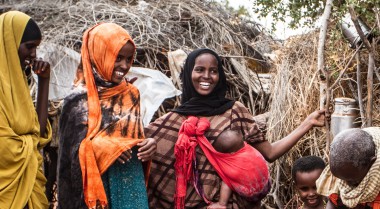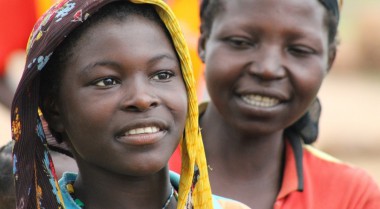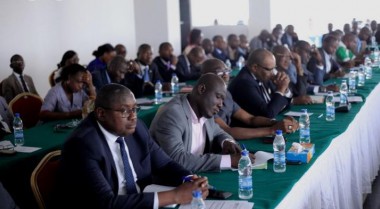
In need for a paradigm shift: Will the visit of the UNSG to CAR change Self-imposition of MINUSCA?
Since 24 March 2012, when the Seleka faction took power in the Central African Republic, the country has witnessed an unprecedented cycle of violence. Today, there are more than a million-people killed and many private and public property is looted and vandalized. Despite the presence on the ground of 12,000 men, soldiers and police of the United Nations Multidimensional Integrated Stabilization Mission of Central Africa (MINUSCA), violence is spreading throughout the country without concrete action to stop it.
A catastrophic situation
The Disarmament, Demobilization and Redeployment (DDR) process is bogged down because negative incentives are more important than positive incentives for armed groups. The government seems reluctant to accept the demands of leaders of armed groups (amnesty, participation in government and security institutions). And for their part, representatives of armed groups have every interest in prolonging the discussions on DDR: they are paid at each meeting in the absence of any coercive force with carte blanche to indulge in violent predation in the areas under their control.
The UN peace strategy in the Central African Republic is based on the same principles as those set out by the UN Security Council for Mali, South Sudan or the Democratic Republic of Congo: reconciliation through dialogue, the fight against impunity, the fight against the trafficking of arms and natural resources, etc. From one country to another, despite differences in context, resolutions duplicate pacification ideas and techniques (DDR, security sector reform, special criminal court, etc.). While in the Central African Republic, MINUSCA has human resource and has the right to use force under Chapter VII of the United Nations Charter, it deftly demands the already weakened Central African authorities to protect its population exposed to the worst violence (Resolution 2301 of July 26, 2016 from the United Nations Security Council).
Urgency of a paradigm shift
It is in this very chaotic environment that Antonio Guterres, United Nations Secretary General will be visiting the Central African Republic against the backdrop of the renewal of MINUSCA's current mandate expiring on November 15, 2017 and the significance of an increase in number of MINUSCA soldiers to 900 men as desired by President Faustin-Archange Touadera at the 72nd UN General Assembly. This is commendable.
From perspectives of the Central African Civil Society namely the National Coalition of Civil Society Organizations for the New Deal in CAR (CNOSC/New Deal), member of the Civil Society Platform for Peacebuilding and Statebuilding (CSPPS), the visit of Mr. Guterres will only help to perpetuate the voluntary powerlessness of MINUSCA if it does not look into addressing three essential issues, among others, reflecting weaknesses of MINUSCA actions which has resulted in a lack of population trust: (i) composition of MINUSCA, which has gradually been built up to over 90% by Muslim contingents; (ii) action of certain contingents directed solely towards the protection of the majority of armed groups judged by these contingents as belonging to a minority while they are strongly engaged in the conflict and (iii) lack of professionalism of certain contingents and appropriate response by MINUSCA forces to mass killings and the protection of civilians victims of armed conflict.
Meanwhile, CNOSC/New Deal sees no way out of a possible crisis or a lasting solution for the Central African crisis as long as there will be no strong pressure on the government nor determination towards armed groups. There can neither be a way out of a potential crisis if the Security Council continues to opt for self-inflicted powerlessness while easing it conscience to act. As a result, the population will continue to die in front of the indifference of the international community.
Due to lack of interest in quickly agreeing on DDR, and knowing that entry into government for some members of the armed groups cannot be a lasting solution to the conflict, the Secretary General of the United Nations and the Security Council have two alternatives:
- Either we are content with a violent status quo and a certain partition of the Central African Republic. This choice, which will be the Congolese scenario replicating in the Central African Republic, will be financially burdensome and will lead to the rooting of armed groups and the creation of a zone of continuous turbulence in central Africa.
- OR take advantage of Mr. Guterres' stay to shift lines towards a negotiated solution by regaining influence over conflict parties. This implies working at the United Nations level, having the legitimate force and diplomacy go hand in hand. It will be a question of ceasing to believe that DDR and only dialogue will bring peace. It will necessarily be key to act on war economy of armed groups, to condition support to government with concrete actions instead of empty promises and to join forces for negotiation.
For CNOSC/New Deal, only the second scenario will justify the important visit of Mr. Guterres for the population, voiceless, their lives under severe threats and who will not be part of gatherings planned during the Secretary General visit. This scenario will also justify the memory of the many MINUSCA troops who shed their blood for peace in the Central African Republic.
CNOSC/New Deal urges all parties to change paradigm: abandon voluntarily powerlessness and opt for an inclusive dialogue geared to the real issues of peace and involve a legitimate coercive force, adapted and appropriate.
Views expressed in this article represent perspectives of the CSPPS Team in the Central African Republic.



